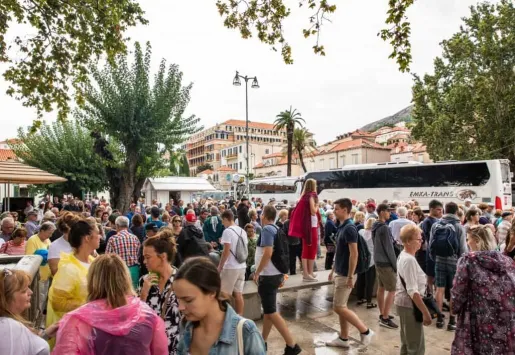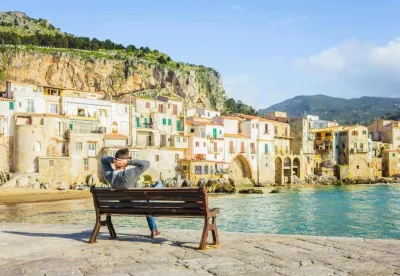
According to a recent study, there are several destinations in Italy at risk of overtourism, including popular cities like Rome, Florence, Milan, and Venice, as well as lesser-known cities such as Bolzano, Livorno, and Rimini.
The study was organized by Demoskopika, which developed the Overall Tourist Overcrowding Index to highlight the areas in Italy most affected by high tourist numbers. The study categorized the destinations into five levels: very high, high, moderate, low, and very low.
The first three categories represent areas facing the most challenges of overtourism in Italy, excessive tourist traffic, which can lead to negative issues such as increased pollution, strain on local resources, and loss of cultural identity.
Destinations at Risk
Locations at a very high-risk level include Bolzano, Livorno, Naples, Rimini, Trento, and Venice.
The following are considered at high level: Aosta, Florence, Forlì-Cesena, Gorizia, Grosseto, Imperia, La Spezia and the Cinque Terre, Milan, Ravenna, Rome, Savona, and Trieste.
However, there is moderate risk for Bologna, Brescia, Como, Genoa, Lucca, Monza Brianza, Padua, Pesaro and Urbino, Pisa, Pistoia, Sassari and La Maddalena, Siena, Vibo Valentia, and Tropea. The areas included in the last two groups (low and very low risk) are out of danger.
The Time to Act
Experts are urging institutions to find strategies to address tourism-related overcrowding. They emphasize the immediate need for responsible actions to ensure that tourism contributes to cultural enrichment and economic development without burdening future generations.
Overtourism in Italy jeopardizes the sustainability of popular destinations and threatens the quality of visitors' experiences and residents' quality of life. It could lead to environmental degradation, cultural erosion, and social unrest if left unchecked.
Addressing tourist overcrowding is not just a call to promote more responsible and sustainable tourism but a necessity for the long-term well-being of communities and territories.
















